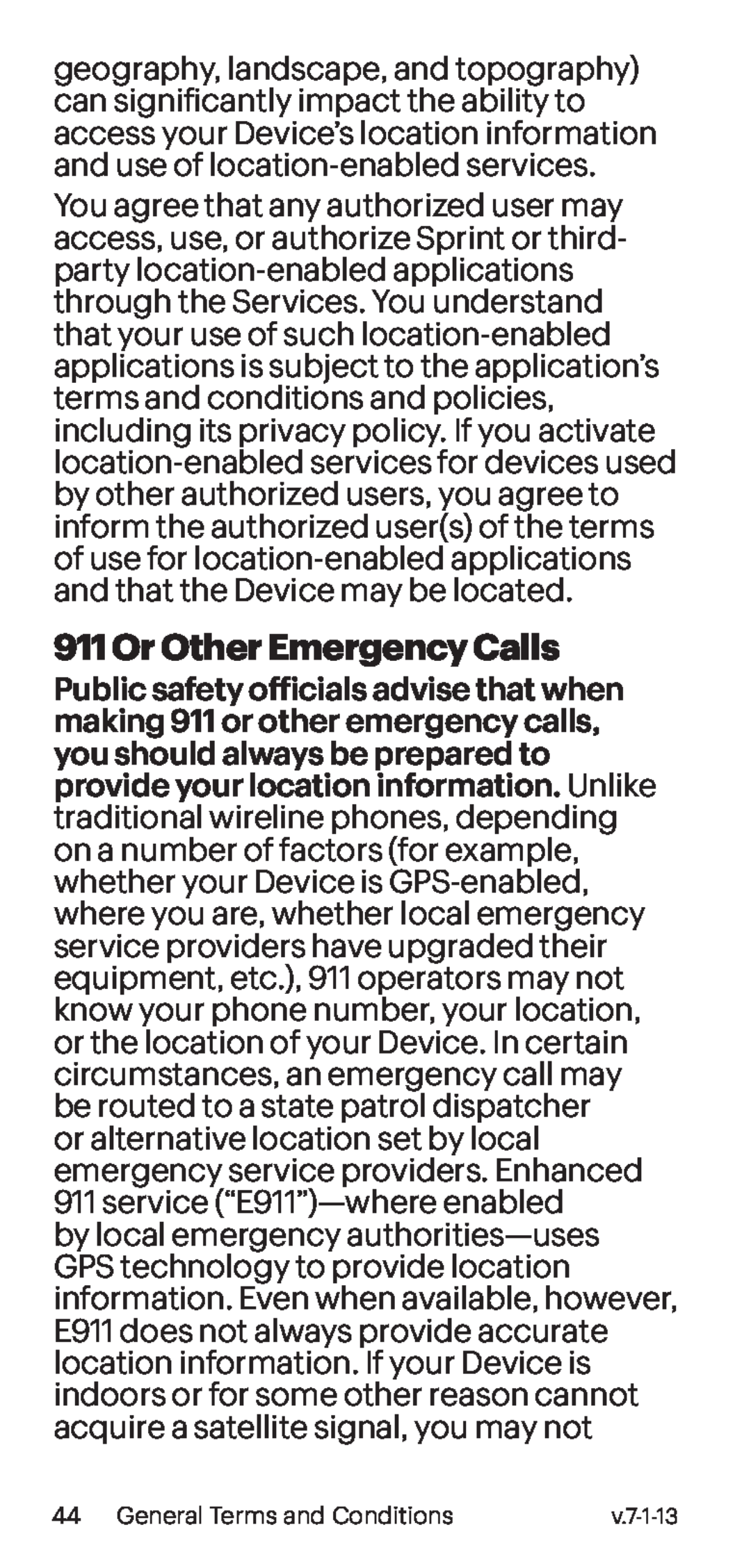geography, landscape, and topography) can significantly impact the ability to access your Device’s location information and use of location-enabled services. You agree that any authorized user may access, use, or authorize Sprint or third- party location-enabled applications through the Services. You understand that your use of such location-enabled applications is subject to the application’s terms and conditions and policies, including its privacy policy. If you activate location-enabled services for devices used by other authorized users, you agree to inform the authorized user(s) of the terms of use for location-enabled applications and that the Device may be located.
911 Or Other Emergency Calls
Public safety officials advise that when making 911 or other emergency calls, you should always be prepared to provide your location information. Unlike traditional wireline phones, depending on a number of factors (for example, whether your Device is GPS-enabled, where you are, whether local emergency service providers have upgraded their equipment, etc.), 911 operators may not know your phone number, your location, or the location of your Device. In certain circumstances, an emergency call may be routed to a state patrol dispatcher
or alternative location set by local emergency service providers. Enhanced 911 service (“E911”)—where enabled
by local emergency authorities—uses GPS technology to provide location information. Even when available, however, E911 does not always provide accurate location information. If your Device is indoors or for some other reason cannot acquire a satellite signal, you may not
44 General Terms and Conditions | v.7-1-13 |
